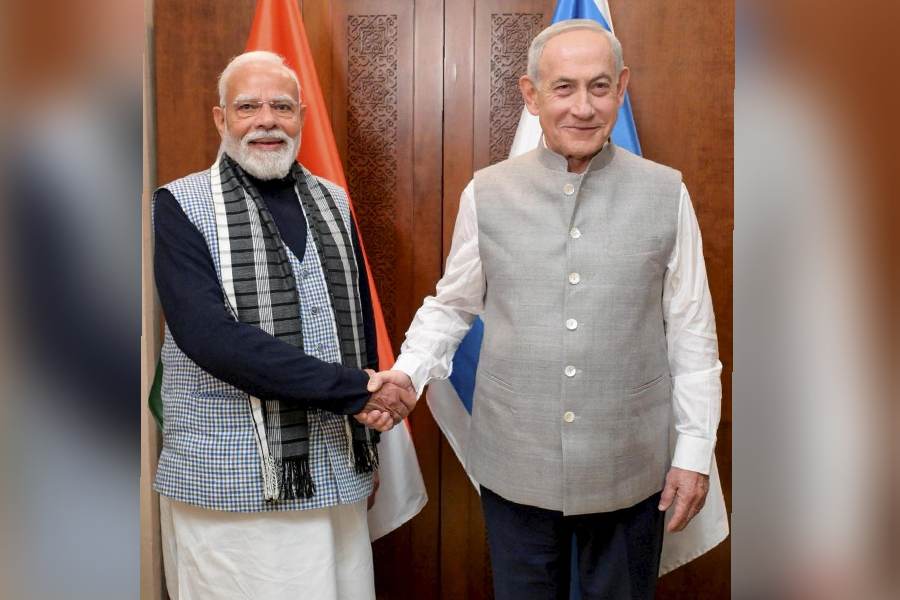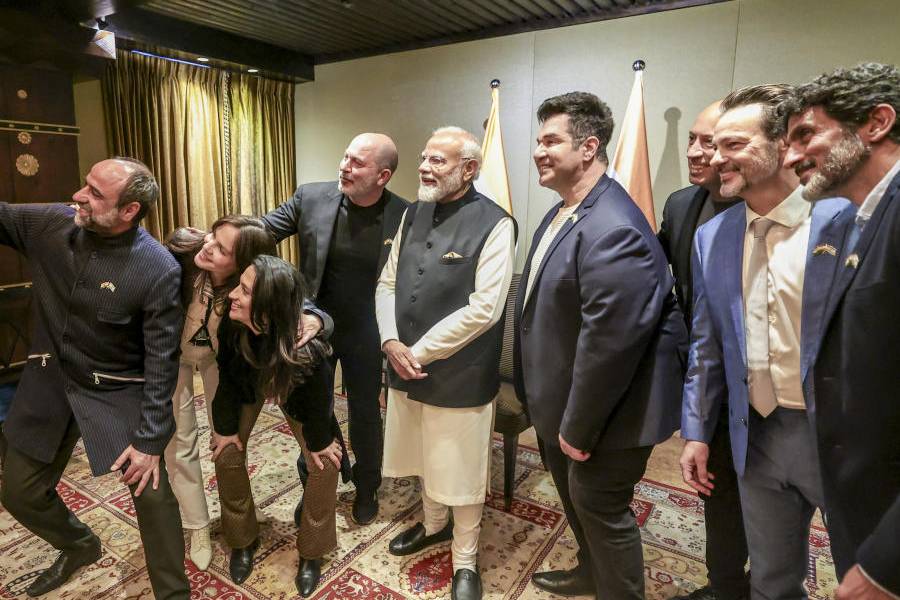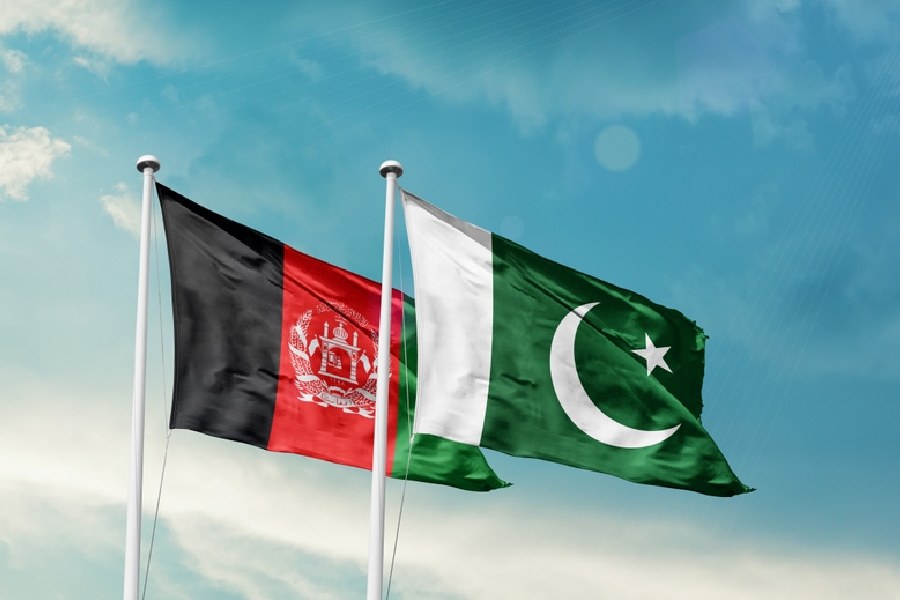Hey dude
Sir — Who is a dude? It is undeniable that a man who is seen as a ‘dude’ is someone who is overtly masculine. But this was not always the case. The word, ‘dude’, originated in the 1880s and has been around ever since. But its meaning seems to have been debased over time. Gerald Cohen, a professor at Missouri University of Science and Technology, writes that in the late 19th century, New York was home to “young and effeminate” dudes who were counterparts of the European dandies. In comparison, the toxic masculinity and the skinny jeans — both of which have overstayed their welcome — of the dudes of today are decidedly insipid. It is time the ‘dudes’ of yore took back control from the alpha males who are giving the word, dude, a bad name.
Sreeja Bardhan,
Hyderabad
Balanced strategy
Sir — Recent developments in the relationship between India and Afghanistan highlight the importance of regional stability and constructive engagement. India has decided to upgrade its technical mission in Kabul to a full embassy. Simultaneously, India is also strengthening its border security with advanced weapons systems. India aims to promote long-term stability in the region through sustained dialogue and collaboration. This strategy reflects foresight and prudence.
Hammad Noori,
Mumbai
Sir — India’s decision to upgrade its embassy in Kabul is a cautious, yet strategic, step to re-engage with Afghanistan without formally recognising the Taliban regime. This could revive humanitarian and healthcare aid and developmental efforts while strengthening trade and connectivity. Yet, challenges remain — the Taliban’s uncertain legitimacy and Afghanistan’s fragile security may limit India’s outreach. Overall, the decision underscores a realistic and balanced foreign policy.
Mohammad Asad,
Mumbai
Fatal negligence
Sir — A public interest litigation filed in the Supreme Court regarding the deaths of children in Madhya Pradesh and Rajasthan after consuming cough syrups has rightly sought an investigation into and systemic reforms in the drug safety regulations (“Maker of cough syrup tied to kid deaths held”, Oct 10). The Drugs Controller General of India has issued guidelines to regulatory bodies in all states and Union territories to test raw materials and finished formulations before releasing them into the market. The negligence in drug manufacturing and distribution demonstrates that India’s decentralised drug regulatory system has been crippled by corruption. This scandal has tarnished the reputation of the pharmacy business both domestically and internationally.
Yugal Kishore Sharma,
Faridabad
Sir — The deaths of at least 20 children in Madhya Pradesh and Rajasthan is a matter of concern for the nation, the reputation of which as the ‘pharmacy of the world’ has come under scrutiny. The World Health Organisation has flagged the risk of contaminated products being supplied to other countries. Cough syrups containing diethylene glycol and ethylene glycol have caused fatalities abroad in recent years. The death of many children in Gambia and Uzbekistan in 2022-23 after consuming Indian cough syrups was seen as a wake-up call for the pharmaceutical industry. Some steps were taken for course correction. But it seems that things are back to square one. The onus is on the Supreme Court — as is usually the case these days — to intervene and stem the rot. The Centre and the states should be held accountable for giving short shrift to public health.
Khokan Das,
Calcutta
At risk
Sir — Attacks by wolves in Bahraich, Uttar Pradesh, have a significant economic impact on local people (“Wolves’ catch: Lives, livelihood”, Oct 10). The use of nets, wooden barricades and scaffoldings for protection is adding to the economic woes of marginalised communities. It is speculated that habitat fragmentation around the Katarniaghat Wildlife Sanctuary, triggered by illegal sand mining, is forcing wolves to venture into human settlements. Crop protection measures and early-warning systems equipped with modern technology are essential.
Prasun Kumar Dutta,
West Midnapore
Sir — The reports, “The Bahraich predators: Wolves and govt neglect” (Oct 9) and “Wolves’ catch: Lives, livelihood”, described the vulnerability and daily struggle for survival of villagers in Bahraich who are not only deprived of pucca houses, roads, toilets and electricity but are also regularly attacked by wolves. Such neglect by the government and district authorities is common in places adjacent to forests. The poor do not seem to matter to those in power.
These attacks are the result of the sand mafia clearing forests. This not only violates forest laws but also leads to environmental problems and risks to human and animal life. The government should take swift action.
Manzar Imam,
Purnea, Bihar
Mind first
Sir — India has 0.75 psychiatrists and 0.07 psychologists per 1,00,000 people. Given this paucity, it is heartening to see mental health professionals going out of the way and engaging with the common people to spread awareness (“Mental health campaign on the go”, Oct 10). It is encouraging that the team from The Hans Foundation targeted underprivileged people as they rarely get a chance to address mental health issues.
Bal Govind,
Noida
Sir — World Mental Health Day, which was celebrated recently, reminds us of the importance of mental health. Healthy minds create healthy individuals and a healthy society. The day reminds us to ensure that mental health is valued, promoted, and protected.
M. Pradyu,
Kannur, Kerala










